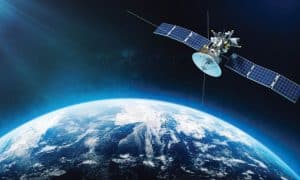Space debris has been a subject that is discussed in almost every forum, and for that many startups are exploring new innovations to minimise space junk. With more satellites being launched every year the low earth orbit is getting cluttered even more, making it a potential zone, that can lead to a series of satellite collisions.
Building on a decade of work carried out across the Agency, ESA has introduced its own bold internal standard to significantly limit the production of debris in Earth and Lunar orbits by 2030 for all the Agency’s future missions, programmes and activities: ESA’s ‘Zero Debris approach’.
ESA Director General Josef Aschbacher’s said to the EU Competitiveness Council, “Europe and the world have been hit with unprecedented crises, illustrating quite vividly the importance of space as a symbol of strength, autonomy, and security. As we confront complex geopolitical and environmental challenges, our dependence on space as a strategic tool becomes even clearer. Our space infrastructure must be more resilient, more autonomous, more competitive.”
Europe and the world have been hit with unprecedented crises, illustrating quite vividly the importance of space as a symbol of strength, autonomy, and security. As we confront complex geopolitical and environmental challenges, our dependence on space as a strategic tool becomes… pic.twitter.com/2cHbQolicQ
— Josef Aschbacher (@AschbacherJosef) November 7, 2023
But space exploration is a global endeavour for the shared benefit of humankind, and the long-term sustainability of space will require action and change from all. ESA is facilitating the Zero Debris Charter: a global initiative for all space entities to sign and follow towards the shared goal of a Zero Debris future.
“As space infrastructure has become the backbone of our modern society, the proliferation of space debris is threatening our way of life. Now is the time to act as a community to channel our collective efforts,” said Aschbacher.
“To implement the Zero Debris Charter, ESA will focus on developing ground-breaking technologies for satellite end-of-life disposal, in-orbit servicing and active debris removal. In addition, ESA will work hand-in-hand with institutions in charge of regulatory aspects.”
What’s ‘Zero Debris Charter’?
Zero Debris Charter is the first initiative of its kind to bring together the largest array and variety of space actors around the world with the joint goal of creating no more debris by 2030 and making possible the long-term sustainability of space activities.
More than 40 organizations, which includes Airbus Defence and Space, Thales Alenia Space, and OHB have actively engaged in the open and collaborative development of the Charter, now released and ready for signatures from “any entity demonstrating a strong commitment to advancing space safety and sustainability”: join the Zero Debris Community and play a vital role in shaping the global response to the space debris problem.
By gathering a wide array of space entities to define ambitious and measurable space debris mitigation and remediation targets for 2030, the Zero Debris Charter has already:
- Built a diverse community of actors in Europe and beyond, committed to further advancing space safety and sustainability, including industrial players of all sizes, government agencies, international organizations, universities and research centres, non-profit foundations and more.
- Developed a precise and common vision of space sustainability for 2030 – combining far-reaching guiding principles and highly ambitious yet realistic technical targets on which to build an ambitious Zero Debris roadmap, driving global space debris mitigation and remediation efforts.
Quentin Verspieren, Protect Accelerator Coordinator said, “Based on a draft proposed by ESA, we have analysed, debated and rewritten every single line of the Charter through a fully open and collaborative process. Beyond having converged on such an ambitious document in record time, our exchanges revealed a strong consensus in Europe and beyond on the need to go further than existing space safety and sustainability practices.”
Space traffic management company Neuraspace is one signatory to the chapter that was involved in creating it. COO Chiara Manfletti commented that it recognizes an “urgent need for ambitious action” on sustainability.
“While the charter is a non-legally binding agreement, it fosters a community of proactive actors working collectively to achieve space safety and sustainability with jointly defined measurable targets for 2030. Clearly, the situation in orbit will evolve, and revisiting the targets and/or new targets will be required,” Manfletti said.
ALSO READ: UK Space Agency Allots Funds For Space Sustainability








